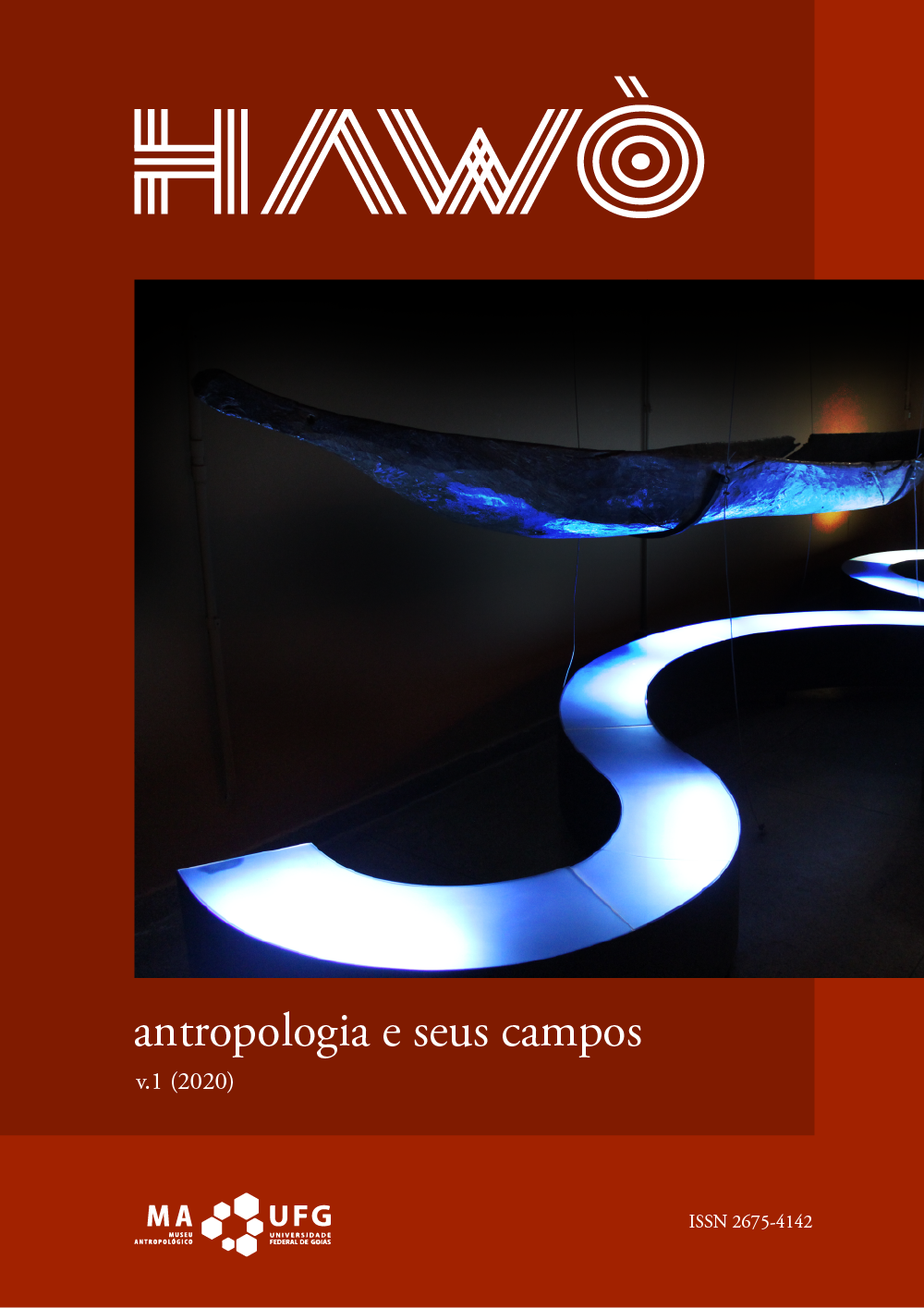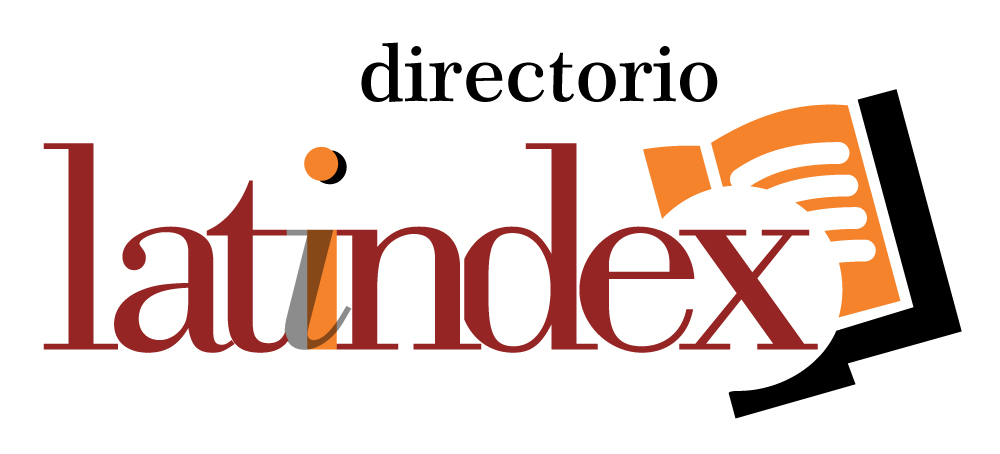Ättä Edemi Jödö
the cosmosonics ritual of inauguration of the Ye’kwana round house
Palabras clave:
Musical ritual, Cosmosonics, Ye'kwana peopleResumen
This article aims to describe a musical ritual performed by the Ye'kwana in 2016, for the construction of their round house, which was not performed in years in Brazil. The Ye’kwana are a Carib people of indigenous speech whose current population is estimated to be around 7,000 people distributed in villages that are located in Venezuela and Brazil. In Brazil, they are a total of around 520 people distributed in three communities located at the Yanomami Indigenous Territory (TIY, in Portuguese), in the state of Roraima. Understanding hearing as a privileged sense regarding the access to knowledge and using different acoustic codes, the Ye’kwana build their houses by intrinsically relating cosmology, sounds, dances and verbal arts. To think about such questions, I use the concept of cosmosonics, to light the centrality of the sound aspects in the cosmology of this Caribe people.
Citas
ALBERNAZ, P. de C. The Ye’kwana cosmosonics a musical ethnography of a North-Amazon people. Doctoral dissertation. Universitätsbibliothek Tübingen: TOBIAS-lib. 2020.
ARVELO-JIMENEZ, N. Relaciones políticas en una sociedad tribal. México: Instituto Indigenista Interamericano, 1974.
BARANDIARÁN, D. El habitado entre los indios Yekuana. Antropológica, Caracas, n. 16, p. 3-95, 1966.
BEAUDET, J. M. Souffles d’ Amazonie: les orchestres “Tule” des Wayãpi. Nanterre: Société d’ Ethnologie, 1997. (Collection de la Société Française D’ Ethnomusicologie, III).
CIVRIEUX, M. de. Watunna: An Orinoco creation cycle. Edited and translated by David M. Guss. San Francisco: North Point Press, 1980.
COPPENS, W. Las relaciones comerciales de los Yekuana Del Caura-Paragua. Antropológica, Caracas, n. 30, p. 28-59, 1971.
GEERTZ, C. The interpretation of Cultures. New York: Basic Books, 1973.
GIMENES, F. Y. História da construção da casa: cantos tradicionais da cultura Ye’kwana (ädemi). Trabalho de conclusão (Curso Licenciatura Intercultural) – Instituto Insikiran de Formação Superior Indígena, Universidade Federal de Roraima, Boa Vista, 2009.
GUSS, D. To weave and sing: art, symbol, and narrative in the South American rain forest. Berkeley: University of California Press, 1990.
HORNBOSTEL, E. M. von; SACHS, C. Classification of Musical Instruments. Galpin Society Journal, v. 14, p. 3-29, 1961 [1914].
KOCH-GRÜNBERG, T. Vom Roroima zum Orinoco. Ergebnisse einer Reise in Nordbrasilien und Venezuela in den Jahren 1911-1913. Zweiter Band. Mythen und Legenden der Taulipang und Arekuna Indianer. Berlin: Dietrich Reimer, 1916.
KOCH-GRÜNBERG, T. Vom Roroima zum Orinoco. Ergebnisse einer Reise in Nordbrasilien und Venezuela in den Jahren 1911-1913. Erster Band. Schilderung der Reise. Berlin: Dietrich Reimer, 1917.
KOCH-GRÜNBERG, T. Vom Roroima zum Orinoco. Ergebnisse einer Reise in Nordbrasilien und Venezuela in den Jahren 1911-1913. Dritter Band. Ethnographie. Stuttgart: Strecker und Schröder, 1923a.
KOCH-GRÜNBERG, T. Vom Roroima zum Orinoco. Ergebnisse einer Reise in Nordbrasilien und Venezuela in den Jahren 1911-1913. Fünfter Band. Typen-Atlas. Stuttgart: Strecker und Schröder, 1923b.
KOCH-GRÜNBERG, T. Vom Roroima zum Orinoco. Ergebnisse einer Reise in Nordbrasilien und Venezuela in den Jahren 1911-1913. Vierter Band. Sprachen. Stuttgart: Strecker und Schröder, 1928.
LEWY, M. Die Rituale areruya und cho’chiman bei den Pemon (Gran Sabana/ Venezuela). Inaugural-Dissertation zur Erlangung des Doktorgrades am Fachbereich Geschichts- und Kulturwissenschaften der Freien Universität Berlin, 2011.
LÉVI-STRAUSS, C. O cru e o cozido (Mitológicas vol. 1). São Paulo: Cosac & Naify, 2004 [1964].
LÉVI-STRAUSS, C. O homem nu (Mitológicas vol. 4). São Paulo: Cosac & Naify, 2011 [1971].
MENEZES BASTOS, R. J. de. A Musicológica Kamayurá. Para uma antropologia da comunicação no Alto Xingú. Florianópolis: Ed. da UFSC, 1999.
MENEZES BASTOS, R. J. de. Música nas sociedades indígenas das terras baixas da América do Sul: estado da arte. Mana, Rio de Janeiro, v. 13, n. 2, p. 293-316, 2007.
MENEZES BASTOS, R. J. de. A festa da jaguatirica: uma partitura crítico-interpretativa. Florianópolis: Ed. da UFSC, 2013.
MONTARDO, D. L. O. Através do Mbaraka: música e xamanismo guarani. Tese (Doutorado em Antropologia) – Programa de Pós-Graduação em Antropologia Social, Universidade de São Paulo, São Paulo, 2002.
PIEDADE, A. T. de C. O canto do Kawoká: música, cosmologia e filosofia entre os Wauja do alto Xingu. Tese (Doutorado em Antropologia) – Programa de Pós-Graduação em Antropologia Social, Universidade Federal de Santa Catarina, Florianópolis, 2004.
RIVIÈRE, P. O Indivíduo e a Sociedade na Guiana: Um Estudo Comparativo sobre a Organização Social Ameríndia. São Paulo: Editora da Universidade de São Paulo, 2001 [1984].
SEEGER, A. Why Suyá Sing: A Musical Anthropology of an Amazonian People. Urbana: University of Illinois Press, 2004.
STEIN, M. R. A. Kyringüé mboraí: os cantos das crianças e a cosmo-sônica Mbyá-Guarani. Tese (Doutorado em Música) – Programa de Pós-Graduação em Música, Universidade Federal do Rio Grande do Sul, Porto Alegre, 2009.
STONE, R. M.; STONE, V. L. Event, Feedback, and Analysis: Research Media in the Study of Music Events. Ethnomusicology, v. 25, n. 2, p. 215-225, 1981.
SZTUTTMAN, R. Comunicações alteradas: festa e xamanismo na Guiana. Cadernos de Campos, São Paulo, n. 4, p. 29-49, 2003.
Descargas
Publicado
Cómo citar
Número
Sección
Licencia
Os(as) autor(es/as) que publicam na Revista Hawò são os responsáveis pelo conteúdo dos artigos assinados e detém os direitos autorais. Concedem à revista, o direito de primeira publicação com o trabalho simultaneamente licenciado sob a Licença Creative Commons Atribuição-Não Comercial (Open Archives Iniciative - OAI). Esse recurso, utilizado para periódicos de acesso aberto, permite o compartilhamento do trabalho para fins não comerciais com reconhecimento da autoria. Caso o texto venha a ser publicado posteriormente em outro veículo, o autor deverá informar que o mesmo foi originalmente publicado como artigo na revista Hawò. Assim sendo, ainda que a revista seja detentora da primeira publicação, é reservado aos autores o direito de publicar seus trabalhos em repositórios institucionais ou em suas páginas pessoais, mesmo que o processo editorial não tenha sido finalizado.
É reservado à revista, o direito de realizar alterações de ordem normativa, ortográfica e gramatical visando manter o padrão de língua, respeitando-se, porém, o estilo dos autores.







